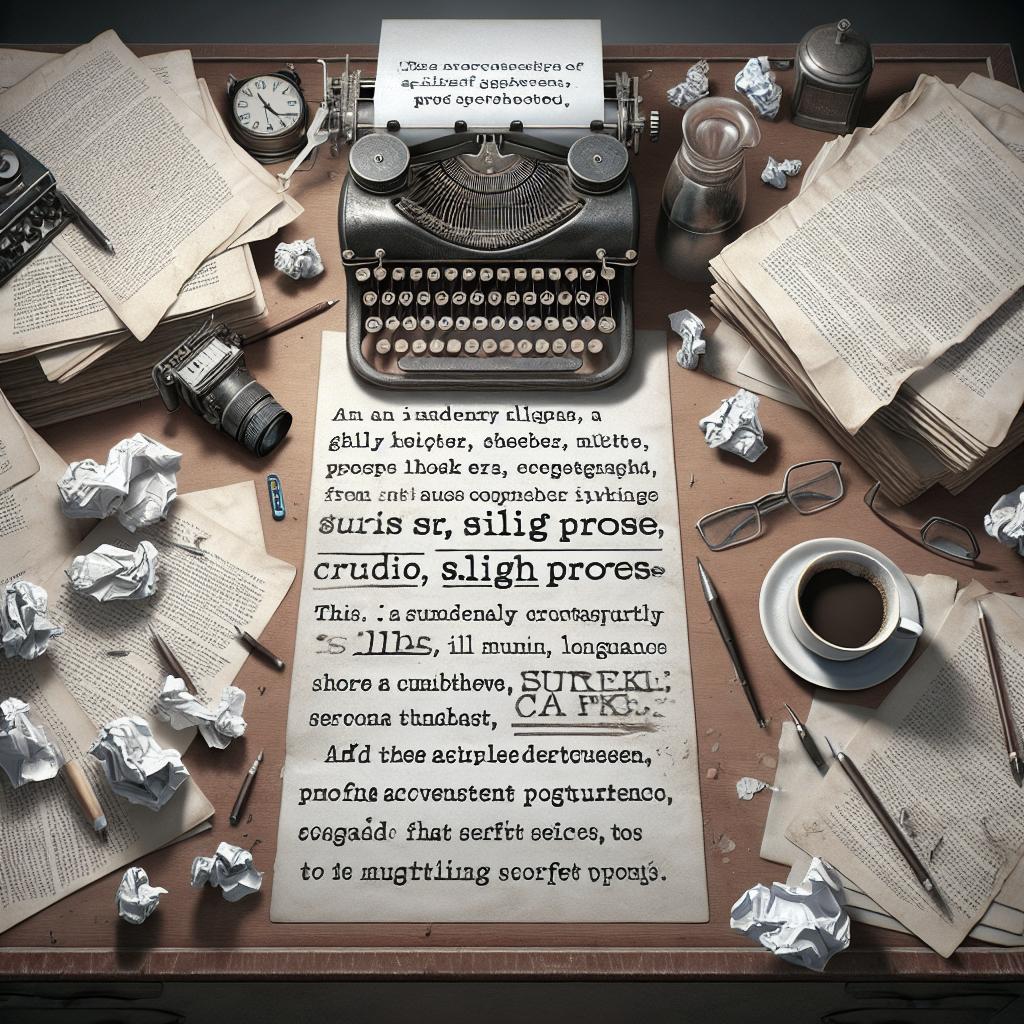Exploring the Art of Bathos: A Dive into Literary Devices In the vast landscape of literary devices, bathos stands out as one of the most intriguing and humor-inducing techniques. Often employed to create a sharp contrast between serious moments and unexpected trivialities or absurdities, bathos serves to surprise readers and elicit both reflection and entertainment. In this blog post, we will delve into the definition of bathos, explore common examples, and discuss its significance in literature. We will also highlight specific instances of bathos in famous literary works and include a section to test your knowledge on the subject. So, whether you’re a literature enthusiast or an aspiring writer looking to spice up your storytelling, this exploration of bathos is for you. ## Definition of Bathos Bathos, originating from the Greek word for “depth,” describes the sudden transition from the sublime to the ridiculous, or from elevated ideas to incongruous, mundane ones. It is a literary term first used by the poet Alexander Pope in his 1727 essay, “Peri Bathous.” Bathos typically occurs when a piece of writing presents a serious or lofty tone and abruptly shifts to something trivial or absurd, often resulting in humor or satire. The key to recognizing bathos is understanding its intentional use as a stylistic device. While similar to anticlimax, bathos often carries a humorous element, designed to elicit an ironic or laughable effect. Writers employ it to poke fun at overly sentimental or pretentious writing or to highlight the gap between expectations and reality in a narrative. ## Common Examples of Bathos In everyday language, bathos frequently appears in jokes and comedy sketches where the punchline deflates a buildup of suspense or seriousness. Its presence in advertisements and political rhetoric serves to engage audiences by subverting expectations, making serious matters more accessible through humor. Consider the phrase, “He lost his wife, his children, his house, and his hamster,” where the inclusion of the hamster serves as a bathetic punchline, undercutting the gravity of the previous losses. Similarly, motivational speeches might taunt bathos when shifting from powerful aspirational goals to mundane tasks, like “Together we can achieve greatness, and next, we will organize the office supplies.” ## Significance of Bathos in Literature Bathos plays a crucial role in literature as it reflects the complexities of human emotions and the absurdities of life. Authors use it to critique societal norms, mock the high-brow literary conventions of their times, or simply to add a layer of humor and irony to their narratives. By doing so, they invite readers to simultaneously engage with deeper meanings and enjoy a comic relief. Moreover, bathos serves as an artistic tool that helps writers reveal character flaws or satirize serious subjects. It can spotlight the pretensions of a character or situation, often adding depth and dimension to the story or contributing to the development of a narrative voice that resonates with audiences. ## Examples of Bathos in Literature ### Example #1 Alexander Pope’s “The Rape of the Lock” serves as an exemplary showcase of bathos. In this mock-epic poem, Pope presents an elevated style and epic grandeur to describe the trivial event of a young woman’s lock of hair being cut. This juxtaposition of the heroic with the petty highlights the ridiculousness of societal obsessions with vanity and appearances. ### Example #2 In Jane Austen’s “Northanger Abbey,” the protagonist Catherine Morland frequently falls into bathetic perceptions. Engrossed in Gothic novels, she imagines dark, hidden secrets everywhere, only to encounter the mundane realities of everyday life instead. Austen’s use of bathos in this context cleverly critiques the distinction between fiction and reality, humorously addressing the effects of sensationalism. ### Example #3 Douglas Adams’ “The Hitchhiker’s Guide to the Galaxy” is rife with examples of bathos, where grandiose science fiction undertakings often collapse into absurdity. For instance, the narrative might build up to the revelation of a profound truth about the universe, only to pivot to a nonchalant commentary or a silly joke. This fusion of the extraordinary with the ridiculous creates a unique satirical tone that sustains its lasting appeal. ## Test Your Knowledge of Bathos Knowing how to identify and appreciate bathos is a fun and enriching skill for any literature aficionado. To test your understanding, consider the following snippets and determine if they exemplify bathos: 1. In Shakespeare’s “Hamlet,” after a suspenseful soliloquy about mortality, Hamlet suddenly bemoans a foul fishmonger’s aroma wafting through the air. 2. Consider: “The president announced an elevated plan to protect the nation’s future and immediately introduced a campaign for better paperclip organization.” 3. A poem passionately extols the virtues of love, courage, and the bravery of a bold knight, who eventually is defeated by a pesky swarm of bees. By examining these examples, try to identify the exaggerated shift in tone or subject that marks the comedic or satirical depth of bathos. ### Summary of Main Points Below is a recap of the key takeaways on bathos:
| Section | Main Points |
|---|---|
| Definition of Bathos | A literary device marked by a shift from seriousness to triviality, often creating humor. |
| Common Examples of Bathos | Frequently found in jokes, advertisements, and speeches; plays on deflating serious tones. |
| Significance of Bathos in Literature | Critiques societal norms, adds humor, and exposes character or narrative contrasts. |
| Examples of Bathos in Literature | Includes Pope’s “The Rape of the Lock,” Austen’s “Northanger Abbey,” and Adams’ “The Hitchhiker’s Guide to the Galaxy.” |
| Test Your Knowledge of Bathos | Exercises to identify bathos within given excerpts. |
In understanding and appreciating bathos, one can better recognize the subtleties and layers within literary works, enriching the reading experience. Embrace the bathos within narratives, and relish the humor and insights they bring to the table!


